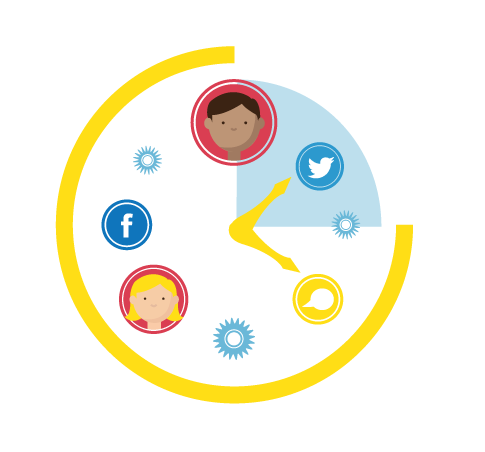
If you think your boss doesn’t know you shop or use Facebook at work, think again.
A recent study by recruitment agency Robert Half found that Singapore employees spend an average of 9.3 per cent of their online time at work visiting shopping sites, looking up travel deals and using social media.
Employees at small companies are also likely to spend more time at work on such activities than those at large enterprises, which are more likely to restrict employee access to the Internet.
These results were based on a survey of 75 chief information officers and chief technology officers in Singapore who monitor usage of the Internet by employees.
Across all companies surveyed, 35 per cent block access to shopping websites while another 52 per cent allow access and monitor for excessive use.
Allowing some use of websites such as Facebook and Amazon may not always be a bad thing. After all, we need our breaks every now and then throughout the work day.
The problem is, with the allure of cheap travel deals, flash sales of low-cost smartphones and holiday photos on Facebook, it’s easy to get carried away.
“A lot of people don’t realise how often they’re going onto these sites,” said Jonathan Holburt, Asia director at Rawstream, a provider of web filtering software that lets organisations ration Internet usage by websites and block malware from creeping into corporate networks.
Rawstream also provides a tool called My Rawstream for employees to self-manage their time on the Internet. “By getting them to manage their own time, they may realise that they may be spending too much time on Facebook,” Holburt said.
He added that companies with telecommuting policies that allow employees to work remotely have also used Rawstream to check if their employees are productive on the road or at home.
The fact that employees are spending a good amount of time on personal online activities may be a sign of a disengaged workforce. In such cases, monitoring or blocking these activities could backfire and cause greater resentment among workers.
Holburt acknowledged that it’s a fine balance between letting employees manage their own time, and monitoring or blocking usage of certain websites. “But if it’s managed correctly, it’s a good balance,” he said.
Citing a recent Gallup study, Holburt noted that 75 minutes of non-business related activity per employee costs employers US$6,250 per year in downtime. For a 100 employee company, this works out to a loss of US$625,000 in downtime per year.
“Given the productivity squeeze in Singapore, trying to find more innovative ways to manage employees is important,” he said, “especially for bosses of SMEs who are the hardest working guys around; if things go wrong, they could lose their houses.”
Organisations may find it easier to justify the use of filtering software to prevent leakage of corporate information, especially through file sharing services.
“We talked to a travel agency in Vietnam that lost a bid for a contract, because someone in the company was leaking confidential information through Dropbox,” Holburt said. “Bosses of SMEs are nervous and anxious about what their employees are doing, because of the amount of effort that they have put into the business”.
Stella Tang, managing director of Robert Half Singapore said employees spending surfing the Web is not as big a problem as it sounds.
“The time employees spend surfing at work seems high, and many companies are moving to place restrictions on employee access to non-work related sites. However, an employee’s personal activities need to be weighed against the contribution an employee makes to the company.
“If an employee is performing above expectations, few employers will worry about them spending a bit of extra time getting their holiday sorted or buying a present for their family,” she said.







that’s because they are like to shopping.